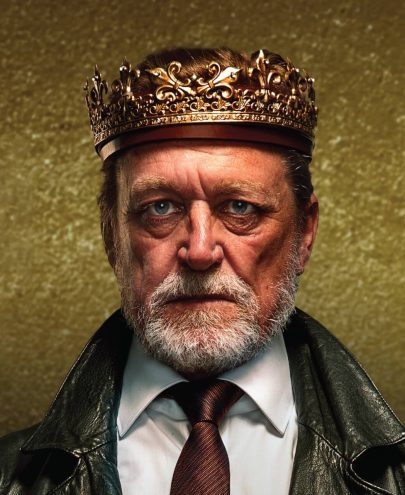Jun 18, 2013 Theatre
By Howard Brenton
Auckland Theatre Company
Q Theatre, June 15, 2013
Popular historical novels, films, television series and plays almost always reflect the concerns of periods contemporary to their creation. What does Brenton want us to take away from a play that begins with the spirited and sensual Anne Boleyn producing triumphantly from her handbag a Bible, and following it with her own severed head?
As an English playwright, Brenton could assume his audience has knowledge of the kings and queens, and especially of Henry VIII. Generations of school children knew about Henry’s six wives, and also that he established what was to become the Church of England, while many book readers in recent years have been won over by Hilary Mantel’s Booker prize-winning Wolf Hall novels. Certainly Mantel’s Cromwell is a far nicer fellow than Simon Prast’s brilliantly reptilian, evil manipulator.
The ATC’s production transports us to the Globe, Brenton’s commissioning theatre. Rachael Walker’s set hints at Elizabethan perspective with elegant apron and inner stages. Performances are declamatory, clear and large, with amusing Elizabethan asides. Elizabeth Whiting’s glorious costumes take inspiration from that period and from the gangsters and molls of the 1950s, with a hint of the dress-up box. Sparkles and furs assist the otherworldly sense of time blurring — some 60 years — between the reigns of Henry VIII (a majestic performance from Andrew Grainger) and James I (role-relishing Stephen Lovatt in wild purple tartan).
The cast is lavishly large, with an inspired gathering of the old guard — Raymond Hawthorne, George Henare, Paul Minifie and Ken Blackburn. They play the men who destroy the “Harlot Queen”, the young woman who courts Henry for seven years before she lets him get past her knee.
In the title role, Anna Jullienne is exquisitely beautiful and arch. Raised in France, Boleyn was taught by Queen Margaret of Burgundy to “know the advantage of everything”. Brenton’s Anne is not merely a coquette who catches Henry’s attention by flinging an orange at him but is political and deeply religious, in contrast to Philippa Gregory’s Anne, who is naïve, unschooled and trusting. Jullienne gives us the queen’s genuine love for the king, her heartfelt desire for “a woman to stand naked before her God”. Her copy of William Tyndale’s controversial translation of the Bible from the Greek is almost burnt, the love letters to Henry she wrote in the margins of another of his incendiary books discovered. Cecil (Henare) says, “It’s dangerous when monarchs read books.” And when Wolsey (Minifie) rants against Tyndale he is pronounced a “true critic”, having “heard of it, not read it”.
Anne Boleyn is a multi-layered, clever and ambitious play that not only offers an impressionistic insight into a woman who has fascinated writers for centuries, but also into how we interpret and believe the written word. Colin McColl’s production is high-octane with some standout performances.
Until July 7.





